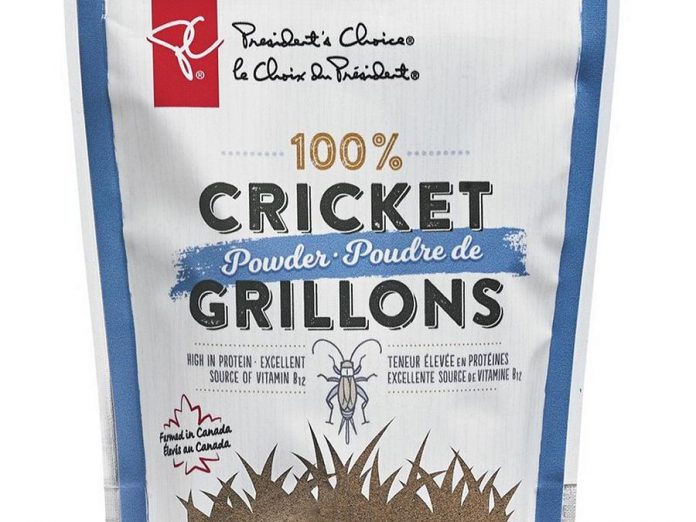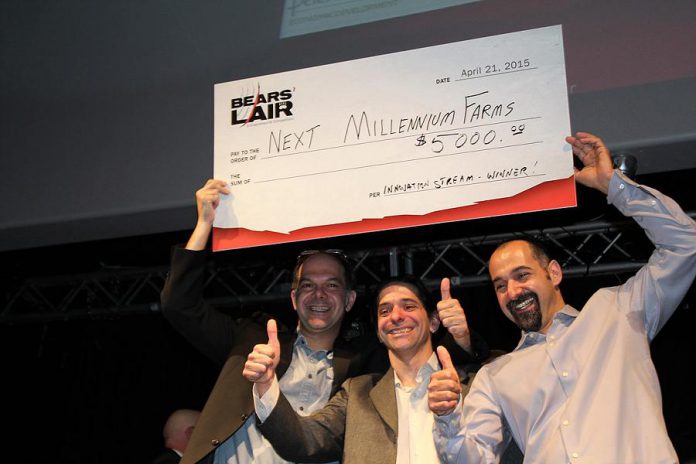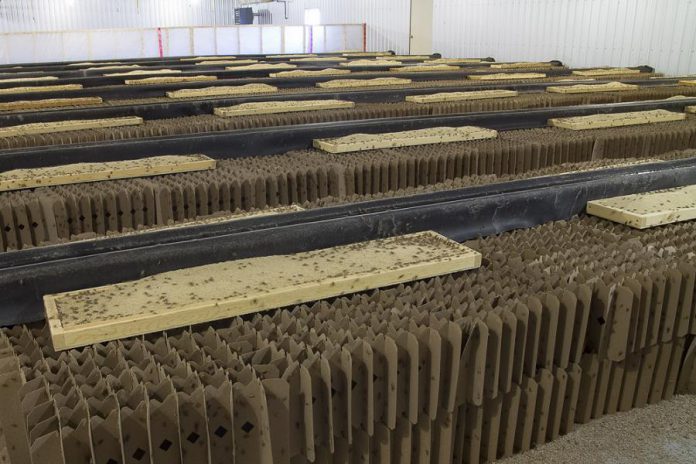
Loblaw has introduced 100% cricket powder, sourced from Entomo Farms in Norwood, as part of its President’s Choice product line up.
The new product is Loblaw’s first move into sustainable insect protein. While new to Canadian culture, 80 per cent of the world’s population already incorporates insects into their diet in some form.
“We are honoured to be working with the President’s Choice team to bring sustainable food solutions to consumers,” says Jarrod Goldin, co-founder and president of Entomo Farms.
“We are striving to take the next step to ensure innovative, inspiring and most importantly conscious food options are available for Canadians and we believe cricket powder is just scratching the surface.”

High-protein cricket powder can be easily added into baked goods, smoothies or meals, to provide high levels of protein, B12, calcium and fibre. Crickets are a versatile ingredient that bring a subtle earthy flavour to food or, if used in small amounts, no taste at all.
Crickets need 12 times less feed than cattle, four times less feed than sheep, and half as much feed as pigs and broiler chickens to produce the same amount of protein. They also require significantly less water than cattle rearing.
Since 2014, Entomo Farms (formerly Next Millennium Farms) has raised and harvested crickets and mealworms for human food and animal feed. The company produces whole roasted insects, both plain and flavoured, and offers a gluten-free and gluten-free organic option as well. Entomo Farms also produces cricket powder, which can be incorporated into baking or cooking.

In 2015, Entomo Farms was the Innovation Winner in Peterborough’s Bears’ Lair entreprenurial competition and also won Startup Canada’s Regional Award for Sustainable Development.
Consumer can find President’s Choice® 100% Cricket Powder on shelves now at their local Loblaw stores.
“With our President’s Choice brand we’re always looking to bring the new and the next to Canadians,” says Kathlyne Ross, VP of product development and innovation at Loblaw.
“By making products like cricket powder widely available in our grocery stores, we are giving Canadians the option to not only try something new, but to also make a conscious decision on what they eat and how it impacts the environment.”


























